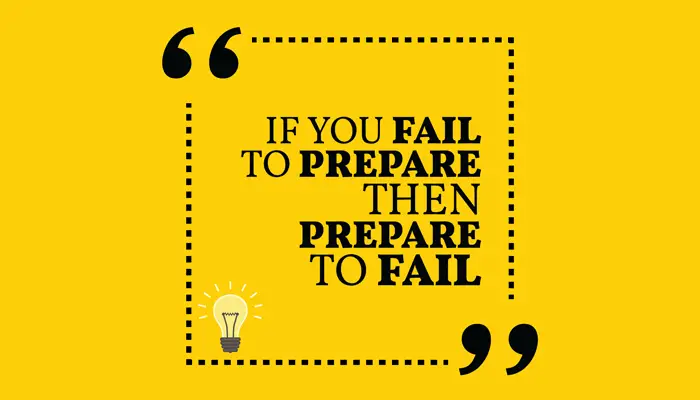Are you interviewing for jobs and not getting a call back? If you are, you might be making some common interview mistakes and not even realizing them.
In this article, we’ll cover 11 of the most common interview mistakes people make and give you some pro tips on how to correct them. Let’s begin:
11 Common Interview Mistakes You Might Be Making
1. Not doing your research
Before an interview, it’s important to do your research on the company, the position, and your interviewer. This will help you feel more prepared and confident going into the meeting.
You can find out basic information about the company on its website, and most LinkedIn profiles will list previous positions and education.
Asking mutual connections for information about your interviewer can also give you some insights into their personality and what they might be looking for in a candidate.
2. Dressing inappropriately

First impressions matter, and what you wear to an interview is a big part of that. Always err on the side of caution and dress slightly more formal than you would for a day at the office. If you’re unsure, it’s better to be overdressed than underdressed.
Avoid wearing anything that might be distracting or offensive, such as strong perfume or cologne, revealing clothes, or anything with political or religious messages.
3. Arriving late
No matter how good your qualifications are, arriving late to an interview is a sure way to make a bad impression.
Be sure to allow extra time for traffic, parking, and finding the right office. Arriving 10-15 minutes early is a good rule of thumb.
4. Fidgeting too much
Nerves are normal before an interview, but try to avoid fidgeting too much during the meeting itself. Playing with your hair, tapping your foot, or clicking a pen can make you seem nervous or uninterested.
Instead, try to sit up straight and make eye contact with the interviewer when they’re speaking. This will show that you’re engaged in the conversation and interested in what they have to say.
5. Badmouthing previous employers

When talking about your previous work experience, it’s important to avoid badmouthing your previous employer or co-workers. This makes you seem unprofessional and difficult to work with, neither of which are qualities most employers are looking for.
If you’re asked about a difficult situation at work, frame it in a positive light by talking about how you handled it and what you learned from the experience.
6. Answering questions with one word
When answering questions during an interview, avoid giving short, one-word answers. This makes it seem like you’re not really interested in the job or that you don’t have much to say.
Instead, take a few moments to collect your thoughts before responding, and give a well-thought-out answer that shows off your qualifications and personality.
7. Asking too many questions
While it’s important to ask questions during an interview so that you can get more information about the role and company, asking too many questions can be off-putting for the interviewer.
Try to limit yourself to 1-2 questions so that you don’t monopolize the conversation.
8. Not having any questions prepared

On the other hand, not having any questions prepared makes it seem like you’re not really interested in learning more about the company or position.
Before going into an interview, take some time to think about what kind of information would be helpful for you to know. This shows that you’re taking the time to consider whether or not this is truly the right job for you, rather than just applying for a random job.
9. Answering personal calls or texts

It’s important to silence your phone before an interview, but even more importantly, don’t answer it if it rings!
Taking a call, or even sending a quick text, shows that whatever is going on outside of the interview is more important than what’s happening inside of it.
10 . Checking your social media
Just like with phone calls and texts, resist the urge to check social media during an interview.
Not only is it rude, but it also sends the message that whatever is happening online is more interesting than what’s happening in front of you.
11 . Appearing disinterested
Throughout the entire interview process, from start to finish, do your best to appear interested and engaged. This means making eye contact, sitting up straight, paying attention when others are speaking, etc.
Remember: first impressions matter! If you come across as disinterested during an interview, there’s no way the interviewer will want to hire you.
Wrapping up
Job interviews can be tricky, but avoiding these 11 common mistakes will help ensure that yours goes smoothly!
By preparing ahead of time, dressing appropriately, paying attention, and being polite throughout the meeting, you’ll make a great impression on potential employers.







I hate interviews ?
But wanna comment on few general things, The website pattern is perfect, the articles is very fantastic. “Believe those who are seeking the truth. Doubt those who find it.” by Andre Gide.